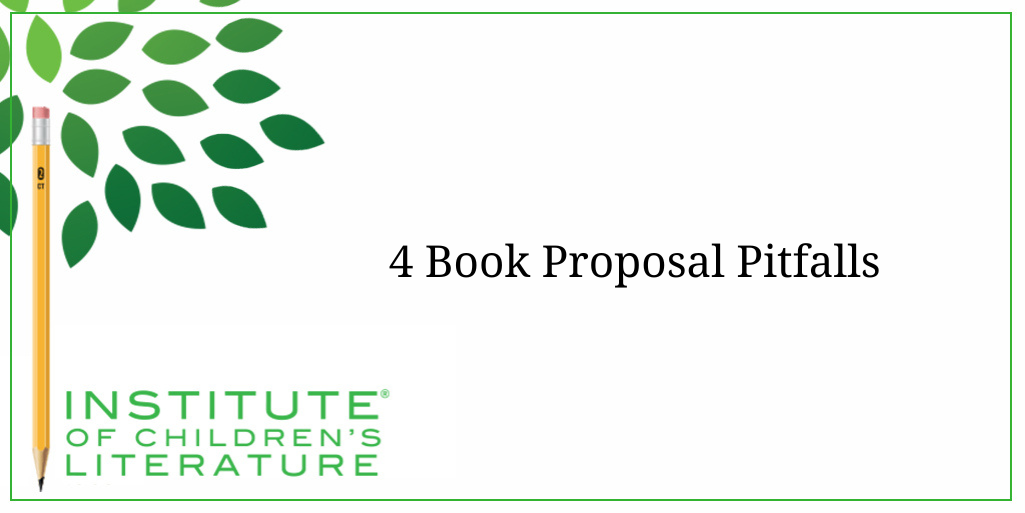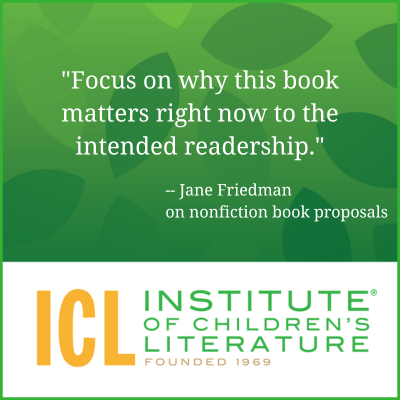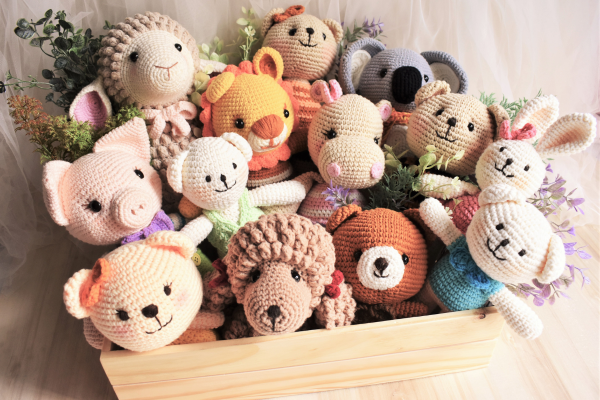
The First Steps in Contacting Agents
You’ve written a book and now you want a literary agent. Now, the research begins. Get tips for finding the right agent for your work and avoiding scammers.

Creating a book proposal can seem daunting. After all, it feels like a high stakes creation. It draws on skills we aren’t always comfortable with. Skills like talking about yourself and talking about your book can make even a great writer feel shy and stumbling. Do you risk bragging? Do you fake it until you make it? What do they want from you? Let’s look at what editors and agents want from a book proposal and what not want to do.
One of the first things to work on when creating a book proposal is your voice and tone. On the one hand, you don’t want to sound stiff and academic. You also don’t want to sound flowery. Both of these have the drawback of waste. It takes a lot of extra words to sound academic and trying to sound too “writerly” or “artistic” can have the same problem. The tone between these two can be very different but they are both wordy and off-putting.

In a book proposal, words are the most valuable thing you have. You need to get in, do the job of the proposal and get out. This means you don’t drag in awkward or convoluted sentence forms to try to sound writerly. It also means you want to avoid wandering off into pointless anecdotes that are maybe a little too friendly.
For instance, you don’t want to talk about how much your grandkids giggled when you told them about this humor book idea. That might feel like a good idea. After all, you want to show kids will find this funny. But the kids might be laughing at your delivery, not the topic. And the kids might be laughing because they love you. How your grandchildren, your kids, or your neighbor’s kids respond to the idea or the book manuscript isn’t going to help sell the project. It ends up simply sounding like chatter.
Let’s look at an example of the same information given in different tones:
Academic: The use of scatological or flatulence humor becomes a cornerstone of a certain school of humor, especially among immature people.
Writerly: To lose the fight against a fleeting fart is to amuse; whether in a quiet classroom or a crowded elevator, basic human functions are the very heart of humor.
Direct and informational: Any teacher, parent, or standup comic knows that poop and poots are funny.
Too casual: I’ve learned from raising three rambunctious kids, two boys and a girl, that poop and poot jokes are hysterical.
When you are working on your tone, keep in mind that content is even more important. And that leads to the next issue.
Sometimes it’s difficult to know exactly how to describe a book. This is why writing a super brief synopsis (or any synopsis, really) can be challenging. What do you include? What do you leave out? You don’t have to simply reproduce the book. If you’re asked to include a chapter-by-chapter synopsis, you’re going to include the main points from each chapter, but you still won’t have everything. You’re looking at what the book does at its core. What does it accomplish? What is the big idea of the book? Why is this book going to improve the day for the reader?

The popularity of crochet projects has created a boom in free projects online, but before young people can jump into this hot craft, they need to know how. KITTY CAT CROCHET introduces all the crochet basics through simple, kid-friendly projects.
PRESIDENTIAL PRANKS AND GIGGLES reveals a different side of American history. From John Quincy Adams’s alligator in the White House to Lyndon Johnson using an amphibious car to prank a Secret Service agent, young readers will love this unique look at our most playful American presidents.
TINY PACKAGES takes a unique look at some unexpectedly mighty creatures, from tiny Mantis Shrimp who can break glass with shock waves to Hawaiian inch worms who do backbends to snatch up prey.
In each of these approaches, the project is shown through brief examples and engaging language. Notice also that we can imagine how these books are going to be organized from the brief description. The crochet book introduces crochet stitches through a series of increasingly complex projects. The presidential pranks book is almost certainly going to tell a series of true stories from different presidents. The tiny packages project will be broken down by different small creatures who do unexpected and impressive things.
The brief synopsis doesn’t spell this out, though it could if there was room in the pitch letter, but even this hint helps an editor or agent see if this sounds appealing to them. Notice also that it’s clear about what kind of nonfiction each of these will be. The first would be active nonfiction as it is a how-to book. The second will be narrative nonfiction as it will tell stories about different presidents. The last one will be expository as it will give interesting facts about these small creatures.
These days, many publishers are looking for comp titles in book proposals for both fiction and nonfiction. Comp titles, or comparison titles, are books that have some important similarity with the book you are proposing to write or wanting to sell.
There are many ways to compare books. In fiction, these may be books in the same genre. They may be books with similar themes or exploring similar concepts. They may be books that are similar in tone or style. They may be books featuring main characters with some strong similarity to yours. For example, if your book is a mystery with a female main character who is also an avid athlete, your comp titles could be mysteries or books with strong main characters or books with ties to spots. Or perhaps you might find books that combine two of those.

When choosing comp titles, it can help to think about the purpose behind them. As Jane Friedman says, the point of comp titles is “to prove how, where, or why there is a readership for your books.” You do it by showing that publishers have snapped up books that are like yours, publishers who responded to an interest they’ve seen in the market. So, the best comp titles will be from well-known publishers. And they will be recent since you aren’t trying to prove there was ever an interest. You’re trying to prove an interest exists now. Never say there are no comp titles. That’s like saying this book is addressing a market that doesn’t exist.
Do not choose comp titles from the publisher you are pitching too, unless you’re trying to show how the book will fit into their line. For instance, if you noticed they’ve covered a variety of unusual sports, some quite dangerous and extreme, but they haven’t covered any of the sports in your proposed series, Death Defying Divers, you may want to mention that as it shows how your book fits into what they’ve already shown an interest in. That doesn’t mean you won’t want to find comp books from other publishers as well.
Many book proposal requests include a line or two asking about your plans for helping promote the book once it is released. This is the point behind asking for your social media experience. Of all the things in your proposal, this is the least important unless you are working with truly tiny publishers. Larger publishers know that the best efforts of the writer cannot match the results of a strong, experienced marketing team at the publisher. They’re looking for ways they might make use of your existing interests. They don’t expect you to take it all on your back. (Note: this is not true of tiny micro publishers. At those, you really will need to become something of a bookseller as they won’t have the ability to offer much if any marketing support on their side.)

Think local. Make use of what is already available. If you have a blog, mention doing a series of posts related to the upcoming book but tailored toward revealing interesting writing stories so the blog posts do more than simply promote. If you have a large friend pool of writers, look at which ones have blogs and offer to do guest posts (which again, will reveal interesting writing stories or writing tips, not simply promotion).
If you have a strong relationship with your local independent bookstores or your local library, maybe line up some appearances. But if you keep your efforts local, you’ll be doing something the publisher cannot do, so they’ll like seeing it.
The bottom line with any book proposal is knowing your book really well and knowing your own strengths and goals. Don’t try to copy every other book proposal. Your book is unique and so are you. Your proposal will be as well. Be clear. Be realistic. And be honest, without oversharing. The combination will have the best chance to net you the result you’re looking for.
With over 100 books in publication, Jan Fields writes both chapter books for children and mystery novels for adults. She’s also known for a variety of experiences teaching writing, from one session SCBWI events to lengthier Highlights Foundation workshops to these blog posts for the Institute of Children’s Literature. As a former ICL instructor, Jan enjoys equipping writers for success in whatever way she can.

You’ve written a book and now you want a literary agent. Now, the research begins. Get tips for finding the right agent for your work and avoiding scammers.

Creating a fiction or nonfiction book proposal can seem daunting. Let’s look at what editors and agents want from a proposal and 4 things NOT want to do.

Submissions in today’s market often involve new elements of pitching your picture books from social media to comp titles. Here’s how to make them work for you.
1000 N. West Street #1200, Wilmington, DE 19801
© 2024 Direct Learning Systems, Inc. All rights reserved.

1000 N. West Street #1200, Wilmington, DE 19801
© 2024 Direct Learning Systems, Inc. All rights reserved.

1000 N. West Street #1200, Wilmington, DE 19801
©2024 Direct Learning Systems, Inc. All rights reserved. Privacy Policy.